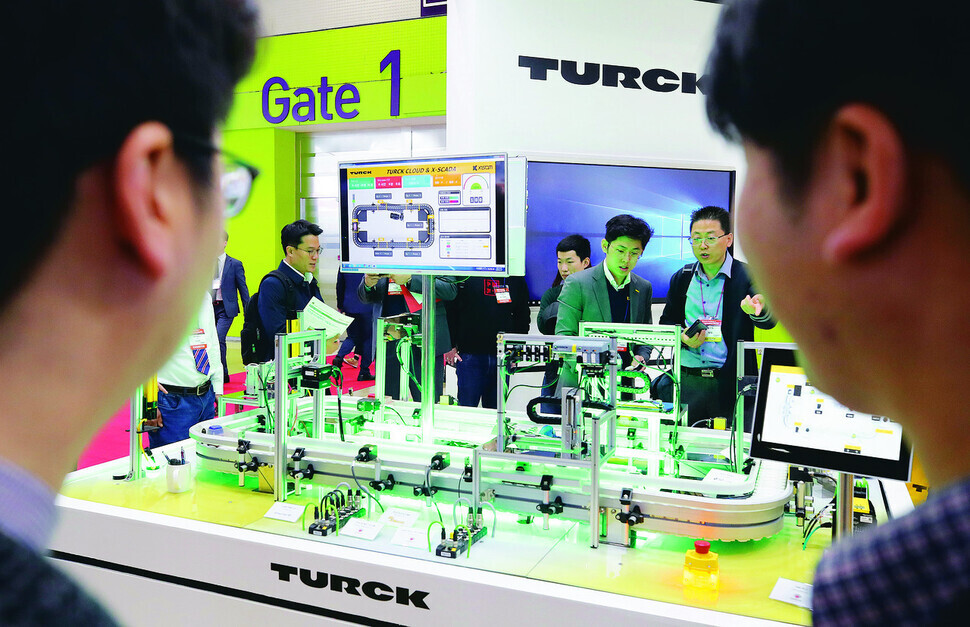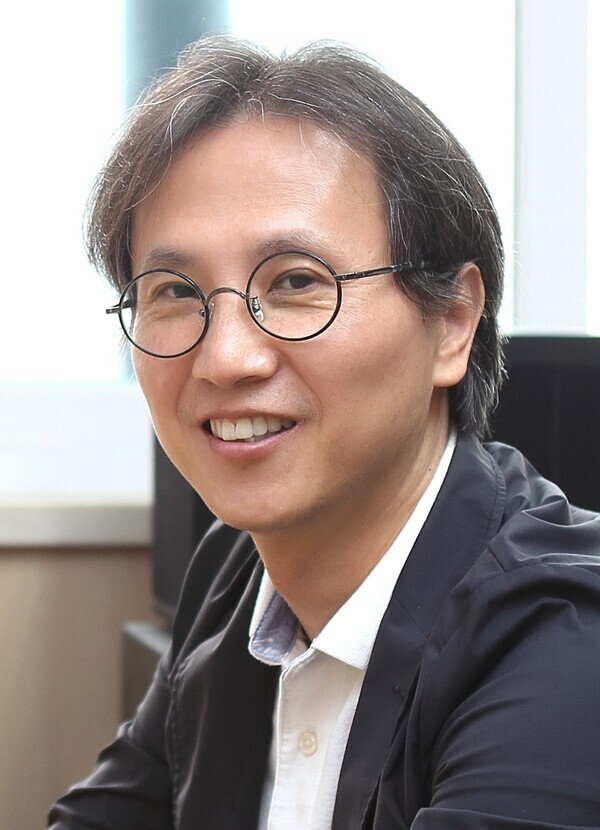hankyoreh
Links to other country sites 다른 나라 사이트 링크
[Guest essay] Korea: An economic success where everyone is unhappy

Are we a success story or a failure? No country has ever achieved rapid economic growth rivaling that of Korea since the beginning of history.
According to data collected by the Madison Project, Korea’s per capita GDP based on real purchasing power grew more than 4000% from $916 in 1946, after liberation, to $37,928 in 2018. This is a growth that is incomparable to that of Germany and Japan, countries that are lauded for achieving economic miracles in the wreckage of World War II, and even to that of China, which has basically rewritten the history of rapid growth.
The economy is not the only thing that has grown rapidly. Ever since Korea democratized in 1987, the principle of democracy has been challenged whenever conservative administrations take power. But as the 2016-2017 candlelight demonstrations go to show, Korea, as an ex-colony, is almost the only country that has retained a democratic system after achieving democratization relatively late.
This brings us to a mysterious phenomenon. Despite this tremendous economic and political success, Koreans are becoming increasingly unhappy. Korea’s statistics regarding depression and suicide rates are the highest among Organisation for Economic Co-operation and Development countries, it also has the lowest total fertility rate, and the labor market is overflowing with workers in unstable employment. With income and asset inequality becoming more and more serious over the past 30 years, inequality has become something far too familiar to Korean citizens.
How can such tremendous success and disastrous failure coexist? Will we be able to cover up our failures if we increase welfare spending, like some argue? Welfare expenditure to GDP increased from 2.6% in 1990 to 13.4% (approximately) in 2020, showing a growth of over 400% in just 30 years. However, the socio-economic crisis has become increasingly serious.
It isn’t that expanding welfare is unnecessary. If we hadn’t expanded welfare expenditure, the crisis we would be facing would be one that Korean society wouldn’t be able to handle.
Some things have become clear. Without changing how the economy profits, only expanding welfare is not a valid response to the crisis we face. This may sound like an oxymoron, but the reason we are facing such a serious socio-economic crisis is that we believe that we haven’t failed, but that we have achieved miraculous success. The way in which we achieved that remarkable success is dragging us down.
Since the 1990s, chaebol conglomerates have focused on increasing productivity by bypassing skilled workers and by carrying out rapid automation. This led Korea to become an advanced economy.
However, bypassing skilled labor has drastically reduced good jobs in the labor market. Since then, Korean society has, regardless of generation and class, created a hostile environment in which all citizens have no choice but to engage in fierce competition, much like in “Squid Game.”
How would one think to care for and stand with others when their own lives are at risk? It is impossible. People who work in decent jobs worry about losing that job, and people who work in more unstable environments are anxious because they are unable to find anything decent. Korean society has become a society in which no one is happy.
Will a change of politics help us escape the trap of success? If we introduce a proper party list-based proportional representation system and make a political system that represents the interests of various citizens, that may be possible.
However, if we don’t have a clear reason or a specific goal in mind for changing this political system, even if we end up changing the system itself, it will be difficult for us to escape the clutches of this obsession with “success.”
Introducing citizens who are used to living their own lives to a political system that enables one to exploit one’s interests may lead to something even more disastrous than the status quo.
Maybe what we need the most now is to create a new kind of country we all want to live in. Only then will we be able to change politics to create the country we want, and a new kind of politics will find a new method of success.
The direction we need to go is clear. We need to scrap the method of growth that has made everyone successful, but at the same time unhappy. We need to get away from the state-of-the-art automation processes, ruled by a minority of elites, chaebol conglomerates, and export-dependent growth.
Instead, we need to forge a new path for growth, where automation and skilled labor, exports and domestic demands, large companies and smaller enterprises should join hands and enable all citizens to become the subject of innovation. Some may say that this is impossible. To them I say: Our history already shows that we are more than capable of turning the impossible into the possible.
By Yoon Hong-sik, professor of social welfare studies at Inha University

Please direct questions or comments to [english@hani.co.kr]

Editorial・opinion
![[Column] Season 2 of special prosecutor probe may be coming to Korea soon [Column] Season 2 of special prosecutor probe may be coming to Korea soon](https://flexible.img.hani.co.kr/flexible/normal/500/300/imgdb/original/2024/0426/3317141030699447.jpg) [Column] Season 2 of special prosecutor probe may be coming to Korea soon
[Column] Season 2 of special prosecutor probe may be coming to Korea soon![[Column] Park Geun-hye déjà vu in Yoon Suk-yeol [Column] Park Geun-hye déjà vu in Yoon Suk-yeol](https://flexible.img.hani.co.kr/flexible/normal/500/300/imgdb/original/2024/0424/651713945113788.jpg) [Column] Park Geun-hye déjà vu in Yoon Suk-yeol
[Column] Park Geun-hye déjà vu in Yoon Suk-yeol- [Editorial] New weight of N. Korea’s nuclear threats makes dialogue all the more urgent
- [Guest essay] The real reason Korea’s new right wants to dub Rhee a founding father
- [Column] ‘Choson’: Is it time we start referring to N. Korea in its own terms?
- [Editorial] Japan’s rewriting of history with Korea has gone too far
- [Column] The president’s questionable capacity for dialogue
- [Column] Are chaebol firms just pizza pies for families to divvy up as they please?
- [Column] Has Korea, too, crossed the Rubicon on China?
- [Correspondent’s column] In Japan’s alliance with US, echoes of its past alliances with UK
Most viewed articles
- 1AI is catching up with humans at a ‘shocking’ rate
- 21 in 5 unwed Korean women want child-free life, study shows
- 3Korea’s 1.3% growth in Q1 signals ‘textbook’ return to growth, says government
- 4Division commander ordered troops to enter raging flood waters before Marine died, survivor says
- 5[Column] Park Geun-hye déjà vu in Yoon Suk-yeol
- 6[Column] Season 2 of special prosecutor probe may be coming to Korea soon
- 7Marriages nosedived 40% over last 10 years in Korea, a factor in low birth rate
- 8[Column] Has Korea, too, crossed the Rubicon on China?
- 9‘Weddingflation’ breaks the bank for Korean couples-to-be
- 10Is Japan about to snatch control of Line messenger from Korea’s Naver?